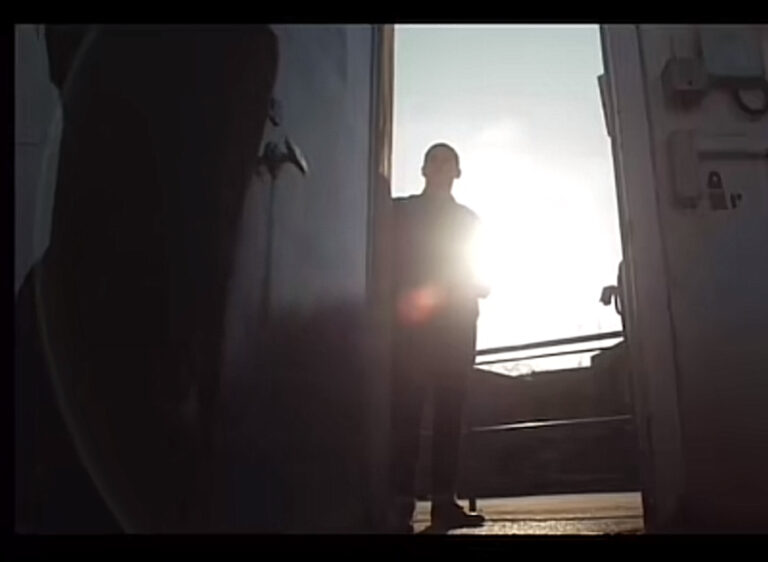Ireland stands on the edge of transformative changes, as the nation evaluates potential reforms across a wide array of sectors: economics, immigration, healthcare, military, and foreign affairs. This moment represents a profound opportunity to address long-standing challenges and redefine the future of Ireland in a rapidly evolving global context. By examining expert insights from mainstream media and authoritative voices across social media platforms, we can gather a comprehensive understanding of what a reformation could entail and its potential impacts on the Irish state and society.
The discourse around economic reform is one of the most pressing, as Ireland’s economic model has evolved significantly since joining the European Union and becoming an attractive hub for multinational corporations. Ireland’s low corporate tax rates have been instrumental in luring foreign investment, fostering growth, and creating jobs. However, international tax reforms, including initiatives from the OECD to introduce a global minimum corporate tax rate, have called into question the long-term viability of this strategy. According to David McWilliams, a prominent Irish economist, Ireland must now pivot to create a more resilient economic model that does not overly rely on multinationals. McWilliams suggests that Ireland could benefit from reducing its reliance on foreign corporations by promoting local entrepreneurship and small to medium-sized businesses. This shift would allow Ireland to maintain its competitive edge while fostering a more sustainable, inclusive economy (source).
Alongside these considerations, Ireland’s growing budget surplus has opened up debates about where these funds should be allocated. Some economists argue that investing in critical infrastructure such as housing, healthcare, and education could alleviate current issues while building a more resilient economy. However, there are concerns that increasing public spending could lead to inefficiencies and over-dependence on state funding, a sentiment echoed by fiscal conservatives. The balance between saving for future financial uncertainties, such as pension obligations and climate change, and addressing immediate societal needs has become a contentious issue. Experts, including those in government advisory roles, emphasize the need for fiscal prudence while also recognizing that targeted investment could yield long-term social and economic benefits (source).
The topic of immigration reform has also taken center stage, as Ireland faces the dual challenges of a growing economy and a housing crisis that has been exacerbated by increased migration. In recent years, Ireland has welcomed a significant number of refugees and migrants, including over 100,000 Ukrainian refugees, putting a strain on the nation’s housing and social services. The Irish government’s approach to managing this influx has included plans to develop state-owned accommodations, with the goal of creating 14,000 new beds by 2028, reducing reliance on temporary or unsuitable housing solutions. However, this move has not been without controversy. Concerns about the impact of increased immigration on local communities and resources have led to protests and debates over the sustainability of Ireland’s immigration policies. Experts argue that a balanced approach is necessary, one that supports humanitarian obligations while ensuring that public services and housing remain accessible to Irish citizens (source).
As part of immigration reform, the government is also exploring measures to incentivize workforce participation among migrants and asylum seekers. For instance, a recent policy change stipulates that asylum seekers who earn above a certain threshold will no longer qualify for the Daily Expenses Allowance, a move aimed at promoting financial independence. While some view this as a step toward a more sustainable migration model, critics argue that it could place undue pressure on already vulnerable populations. The challenge, therefore, lies in creating an immigration policy that supports economic growth, respects Ireland’s humanitarian commitments, and addresses the needs of the local population (source).
Healthcare reform is another critical area where transformative changes are being considered. Despite considerable public investment in healthcare, Ireland continues to grapple with issues of accessibility, efficiency, and long waiting times. In Budget 2024, the government allocated €22.5 billion to healthcare, yet the sector faces systemic challenges that hinder effective service delivery. Experts argue that increasing funding alone may not be sufficient to address these issues. Instead, healthcare professionals and policymakers advocate for structural reforms, including digital health integration and workforce expansion, to create a more responsive and patient-centered system. According to public health experts, leveraging digital technologies could help streamline administrative processes, reduce wait times, and enhance overall patient care, but this shift requires significant investment and careful planning (source).
The long-standing challenges within the Irish healthcare system underscore the need for a comprehensive overhaul that goes beyond temporary fixes. Experts have often pointed to the difficulty of implementing lasting healthcare reforms, citing past efforts that failed to achieve meaningful change due to resistance from various stakeholders and resource constraints. Learning from these experiences, policymakers are now focusing on collaborative approaches that prioritize patient needs and foster a more sustainable healthcare model. This includes fostering partnerships between public and private providers, thereby introducing competition that could lead to improved services and lower costs. A reformed healthcare system, therefore, would aim to balance public accountability with the efficiency and innovation associated with private sector involvement (source).
Military and foreign affairs reforms are equally pivotal in shaping Ireland’s role on the global stage. Historically, Ireland has maintained a policy of military neutrality, a stance that has shaped its foreign relations and defense policies. However, global geopolitical shifts and security threats have prompted discussions on the future of Ireland’s defense strategy. Republican-oriented advocates emphasize the importance of bolstering national defense capabilities to protect Ireland’s sovereignty while maintaining its neutral stance. This includes investing in modernizing military technology and expanding Ireland’s capacity for peacekeeping missions. Such reforms aim to equip Ireland’s defense forces to address contemporary security challenges without compromising its policy of neutrality (source).
Ireland’s relationship with the European Union also plays a significant role in shaping its defense and foreign policy. While Ireland has benefited from EU membership, including substantial financial support, the nation seeks to balance its commitment to the union with its national interests. Recent debates have centered on how Ireland can navigate EU security initiatives while preserving its sovereignty. Military experts suggest that Ireland’s participation in EU defense projects should be carefully calibrated, allowing the country to benefit from collective security without compromising its independent foreign policy. This cautious approach reflects a broader desire among policymakers to assert Ireland’s autonomy on the global stage while leveraging strategic partnerships for mutual benefit.
Public service reforms have become a focal point, with the Irish government launching the “Better Public Services – Public Service Transformation 2030 Strategy.” This initiative aims to create a more efficient and responsive public sector by embracing digital innovation, workforce modernization, and evidence-based policy-making. The strategy emphasizes the importance of trust, transparency, and fairness in public service delivery, aligning with the Civil Service Renewal 2030 Strategy. By prioritizing digital transformation, the public service aims to improve accessibility and streamline services, thereby enhancing the citizen experience and reducing bureaucratic inefficiencies (source).
Social inclusion reforms are also at the forefront of Ireland’s reformation agenda, as the government seeks to address poverty and promote equal opportunities. The “Roadmap for Social Inclusion 2020-2025” outlines a series of commitments aimed at reducing poverty and enhancing social integration. Key initiatives include expanding access to transportation services for individuals who are medically unfit to drive, a measure that particularly benefits older adults. This social inclusion strategy reflects Ireland’s commitment to fostering a society where all citizens, regardless of background or circumstance, have access to essential services and opportunities for advancement. However, the success of these initiatives depends on effective implementation and continued investment in social programs (source).
Legal reforms represent another significant aspect of Ireland’s reformation process, with new legislation being introduced to address emerging societal challenges. The government is in the process of enacting updated hate speech laws to replace outdated legislation from 1989, which was deemed ineffective in addressing modern-day issues, particularly in the digital space. The proposed legislation seeks to curb the spread of hateful and incendiary content online while balancing the protection of free speech. Legal experts and civil rights advocates continue to debate the scope and implications of these laws, underscoring the need for a legal framework that protects individuals without stifling legitimate expression (source).
Moreover, recent referendums on constitutional amendments concerning family and caregiving roles indicate Ireland’s willingness to revisit foundational legal definitions to reflect contemporary values. Although these proposals were rejected by voters, they sparked important conversations about the evolving nature of family and societal obligations. Legal scholars suggest that these referendums highlight a shift in public attitudes and could pave the way for future reforms that acknowledge diverse family structures and caregiving responsibilities in Irish society.
In exploring the potential impact of these comprehensive reforms, it becomes evident that Ireland is at a crossroads, where decisions made today will shape the nation for generations to come. The move toward economic diversification, a balanced immigration policy, healthcare modernization, enhanced national defense, and social inclusion reflects
As Ireland approaches a critical phase in its political and economic evolution, discussions regarding reform across various sectors—economics, immigration, healthcare, military, and foreign affairs—are intensifying. Advocates for a republican framework, which emphasizes individual liberty, economic freedom, and national sovereignty, have pushed for reforms that center on empowering the citizenry and reducing the influence of government over day-to-day life. These reforms would shift Ireland away from expansive state intervention and focus on policies that prioritize economic efficiency, personal responsibility, and the strengthening of national identity.
Economic Reforms: Promoting Economic Liberty and Sustainability
Ireland’s economic success has been closely tied to its status as a hub for multinational corporations, with its low corporate tax rate serving as a key attractor. However, a republican-oriented approach to economic reform would focus on the preservation of this competitive advantage while introducing measures that encourage a more entrepreneurial spirit among Irish citizens. Proponents argue that further tax reductions for small and medium-sized businesses, combined with the streamlining of regulations, could stimulate homegrown innovation and job creation.
At the same time, advocates of republican economic policies would urge a reduction in state spending, specifically in areas where the government has historically expanded its footprint. There is a belief that excessive public sector growth often stifles private sector vitality and limits personal freedoms. By reducing the size of the state, proponents argue that more resources could be allocated to the private market, thus driving growth and reducing reliance on government welfare programs. This philosophy aligns with republican values that emphasize personal responsibility, encouraging citizens to engage in work and entrepreneurship, rather than becoming dependent on state intervention.
The debate on public spending has already gained traction, with critics of Ireland’s high public sector expenditure warning that the country may face fiscal risks if state outlays continue to rise unchecked. Key sectors such as social welfare and healthcare have been identified as areas ripe for reform. While healthcare access remains critical, there is a growing concern that overreliance on public systems can result in inefficiency, and a republican approach would focus on decentralizing healthcare and promoting competition, which could lead to better outcomes at a lower cost.

Immigration Reforms: Protecting National Identity and Strengthening Sovereignty
One of the most contentious issues in modern Ireland is the ongoing debate over immigration. A republican perspective emphasizes the importance of safeguarding national identity and cultural heritage, viewing uncontrolled immigration as a potential threat to both. Proponents argue that Ireland’s immigration policies should be selectively tailored to serve the national interest, prioritizing skilled workers and ensuring that newcomers can contribute to the country’s economy without overwhelming public services. In this view, it is essential to protect the interests of Irish citizens first and foremost, ensuring that jobs, housing, and resources are allocated equitably.
Reforming the asylum process is also a key issue for those holding a republican viewpoint. Critics of the current system contend that it places undue pressure on social services, resulting in a strain on healthcare and housing for Irish citizens. They argue that Ireland’s capacity to integrate migrants is limited and that immigration policies should be aligned with the country’s resources, ensuring that newcomers are capable of integrating successfully without undermining the living standards of the native population.
In this context, a republican-oriented immigration policy would promote selective immigration that aligns with economic needs while emphasizing the importance of national cohesion and social stability. Public services would be reformed to handle these changes, focusing on efficiency rather than expanding the state’s role in providing welfare.
Healthcare Reforms: Efficiency and Individual Choice
The Irish healthcare system has long faced criticism for inefficiencies and long waiting times. Advocates for a republican approach to healthcare argue for a market-driven system that would prioritize patient choice and reduce government oversight. The central tenet of this reform would be the decentralization of healthcare services, empowering private providers to compete alongside public options. By fostering a more competitive landscape, proponents contend that Ireland could provide better healthcare outcomes at a lower cost to taxpayers.
Republicans in Ireland would emphasize reducing bureaucratic red tape and providing individuals with greater control over their healthcare decisions, including the freedom to choose their healthcare providers and insurance plans. Such reforms would aim to eliminate inefficiencies in the public system while encouraging innovation and private sector involvement in the provision of health services.
Moreover, republicans argue that healthcare should be a personal responsibility, where individuals take ownership of their health and seek insurance solutions that suit their needs. They stress that social welfare programs should not replace personal initiative and that policies should encourage healthy living and preventative care.
Military Reforms: Strengthening National Defense and Sovereignty
Republican reforms in the military sphere would seek to bolster Ireland’s defense capabilities while maintaining its long-standing tradition of military neutrality. A strong national defense is viewed as essential for protecting the country’s sovereignty and ensuring its place on the global stage. Under republican reforms, Ireland would invest in modernizing its military infrastructure and capabilities, ensuring that it can effectively defend its borders and contribute to international peacekeeping efforts without being entangled in unnecessary foreign conflicts.
In this context, republican policymakers would advocate for increasing defense spending, not to support military interventions abroad, but to fortify Ireland’s territorial integrity and defend against potential threats. Furthermore, reformers believe that Ireland’s neutrality can be preserved while still participating in NATO-led initiatives on security and defense that do not compromise its independence. The goal would be to ensure that Ireland’s military capacity is aligned with its national interests and sovereignty, free from overreliance on foreign powers.
Foreign Affairs: Protecting National Interests and Sovereignty
Ireland’s foreign policy, under a republican framework, would focus on protecting the nation’s sovereignty while advancing its interests on the international stage. This would mean a more cautious and selective approach to international partnerships and agreements. Ireland has historically been a member of the European Union, but republican foreign policy advocates often argue that EU membership can be limiting when it comes to national autonomy. A republican approach might involve seeking reforms within the EU that allow for greater flexibility, especially in areas of national importance such as immigration, taxation, and trade policies.
In the realm of international trade, a republican Ireland would seek to negotiate agreements that prioritize the country’s economic interests, allowing it to maintain its status as a competitive trading partner while safeguarding local industries. Ireland’s relationship with the US, as a major trading partner, would also be of great importance. Republican leaders would advocate for policies that ensure Ireland’s interests are front and center in these negotiations, preventing foreign influence from undermining domestic prosperity.
Additionally, a republican foreign policy would stress the importance of national independence in foreign relations, meaning that Ireland would retain the right to make its own decisions without undue pressure from external entities, whether from the EU or global powers. This would involve a careful balancing act—engaging with the international community to advance Ireland’s economic and political interests, but always ensuring that national sovereignty remains a top priority.
Ireland’s future in a reformed republic would center on strengthening its economy through market-driven reforms, protecting national identity and sovereignty, and placing a greater emphasis on personal responsibility and civic virtue. It would aim for a model that combines the nation’s traditional values of fairness and self-reliance with the demands of a rapidly changing global environment. Such reforms would seek to create a more dynamic and resilient Ireland—one that stands on its own as a proud, independent nation.
By prioritizing these republican values, Ireland could potentially navigate the complex challenges of the 21st century, reasserting control over its domestic affairs while fostering a more prosperous, secure, and self-sufficient society.









